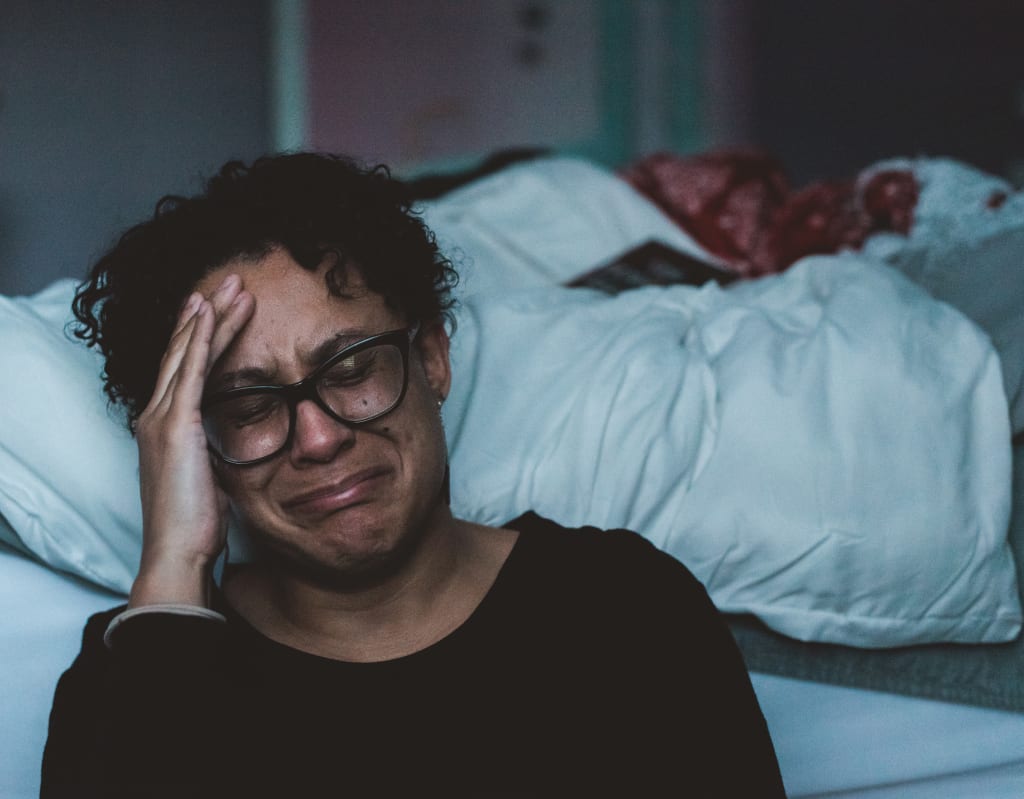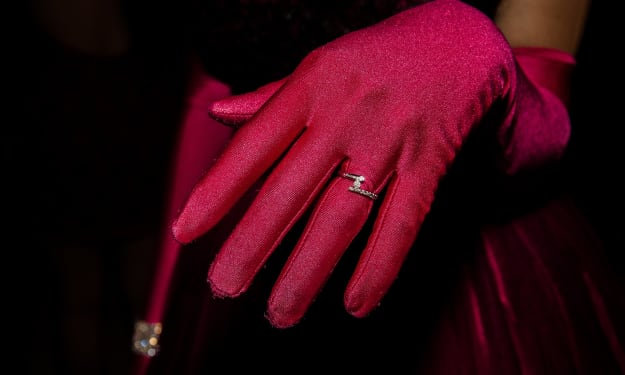What It's Like Living with Hypochondria
The Hard Truth About Living and Dealing with Health Anxiety

I can remember the very first instance in which I started to worry incessantly about my health and about death. I was watching a TV show and the main character had been diagnosed with a severe, terminal brain tumor. From that point onward, I obsessively worried about whether I had one, too. I would Google the symptoms: Headaches I have that, memory problems I forget what I was doing the other day, and fatigue I'm always tired. I would stay awake for nights on end worrying about not waking up in the morning and succumbing to this cancerous brain tumor I was so convinced I had. The only way I could sleep was by tiring my mind, with all the excessive worrying, and I had no other option.
Hypochondria, or as it's referred to more commonly now Health Anxiety, is a form of anxiety in which an individual obsessively worries over health issues and their (as they see it) imminent demise from said health problems. I guess the obsessive nature could be likened to that of an individual with OCD—the thoughts consume every single part of the person's life—mine included. But it's not just every day illnesses that individuals worry about. No. A simple rationally explained symptom—such as heartburn—will, to a hypochondriac, mean something like stomach cancer. The flu will be HIV. A cramp in the left arm will instantly be self-diagnosed as a heart attack. If my flatmate burns toast and I can smell it, there is no chance in the world that I will not believe I am about to have a stroke.
I understand how unreasonable this can sound to individuals without health anxiety. Heartburn is heartburn, the flu is the flu, an a cramp is cramp. Burnt toast is burnt toast. And it can be difficult for individuals with health anxiety, like me and like individuals with other mental health issues, to explain to people who do not understand. Constantly seeking reassurance from friends and family can cause them to get annoyed, which is entirely understandable. In the height of one of my obsessive panics, I can tell my friends or my sister that I have cancer or HIV upwards of five times a day. I find myself constantly seeking reassurance: "I read that HIV can't be transmitted that easily, but then again, if this particular circumstance arises then the percentage increases by 20 percent and I think that circumstance has arisen. Do you think that's true?" This would drive anyone crazy.
And it is not as easy as seeking a doctor's diagnosis to settle the minds of a hypochondriac. For one, a doctor's diagnosis (to us) is never right. You read in the news all the time about patients who have been misdiagnosed with mild illnesses when really they had life-threatening ones. This is enough to panic anyone, but for a hypochondriac, this belief applies to every (or at least almost every) doctor's diagnosis. But the issue also applies that individuals may not want to seek diagnosis. I know, myself, used to fear going to the doctors to get checked for a brain tumor or other cancers I believed I had in case I did actually have it. My anxiety somehow rationalized that it would be better not knowing and living in a suffocating bubble of fear than taking the risk of going to the doctors and maybe being fine, but also maybe being told that I'm dying. Individuals with health anxiety may avoid watching certain TV shows (think 24 Hours on A&E) to avoid seeing any health ailments, and frequently check for bodily signs. I have even been known to link adverts that I see on the TV or on the internet—say a cancer research advert—and believe that it is some sort of sign from God that I myself have cancer.
I don't believe there is a cure for health anxiety (nor do I really believe any mental health illness can be cured, but that's another story). I, myself, have received help such as CBT (cognitive behavioral therapy), which to an extent worked. But all it takes is the introduction of a tiny symptom—like a headache on my period—and I am instantly back to worrying that I have toxic shock syndrome. There are measures that can be put in place to help individuals with health anxiety though. As you can imagine, Google is our worst enemy. No matter what you Google, the result will always somehow lead to certain death. To someone like me, this is all the mind can focus on. Yeah, maybe I do need to pop a few paracetamols and go to bed, but what if I die instead?Avoiding Googling symptoms can be, as I've found, the trickiest part of dealing with Health Anxiety.
This mental health condition is not as uncommon as one might think. Everyone has that innate sense of fear of death, of course—it's Mother Nature. Everyone Googles their symptoms and everyone gets a small shred of dread when they read "life-threatening" under the symptoms header. It is just that people with heath anxiety have it multiplied and multiplied until it becomes practically debilitating and can consume big parts of our lives.
My aim of this article is not to preach to people—I'm not sure what I could say to help and I'm not sure what other individuals could do to help. I just want to raise some awareness of it—as I believe at the moment, many individuals with hypochondria do not feel like they are taken seriously when they confide in their relatives, friends, and even their doctors.
I try my best to deal with the health anxiety as it comes, and it still floors me every so often. I've found that when I'm in a panic about a health concern, it helps when my friends and peers rationalize with me and tell me everything will be OK; there is no guarantee that I will believe it, but there's no denying that it helps. I also find it comforting to not be alone during those periods. If someone has taken the courage to confide in you about having health anxiety (or any mental health issue at that rate), you should try your best to be comforting, accepting, and most importantly, non-judgmental. That's all anyone can ever ask for.
—Sharna Neale






Comments
There are no comments for this story
Be the first to respond and start the conversation.